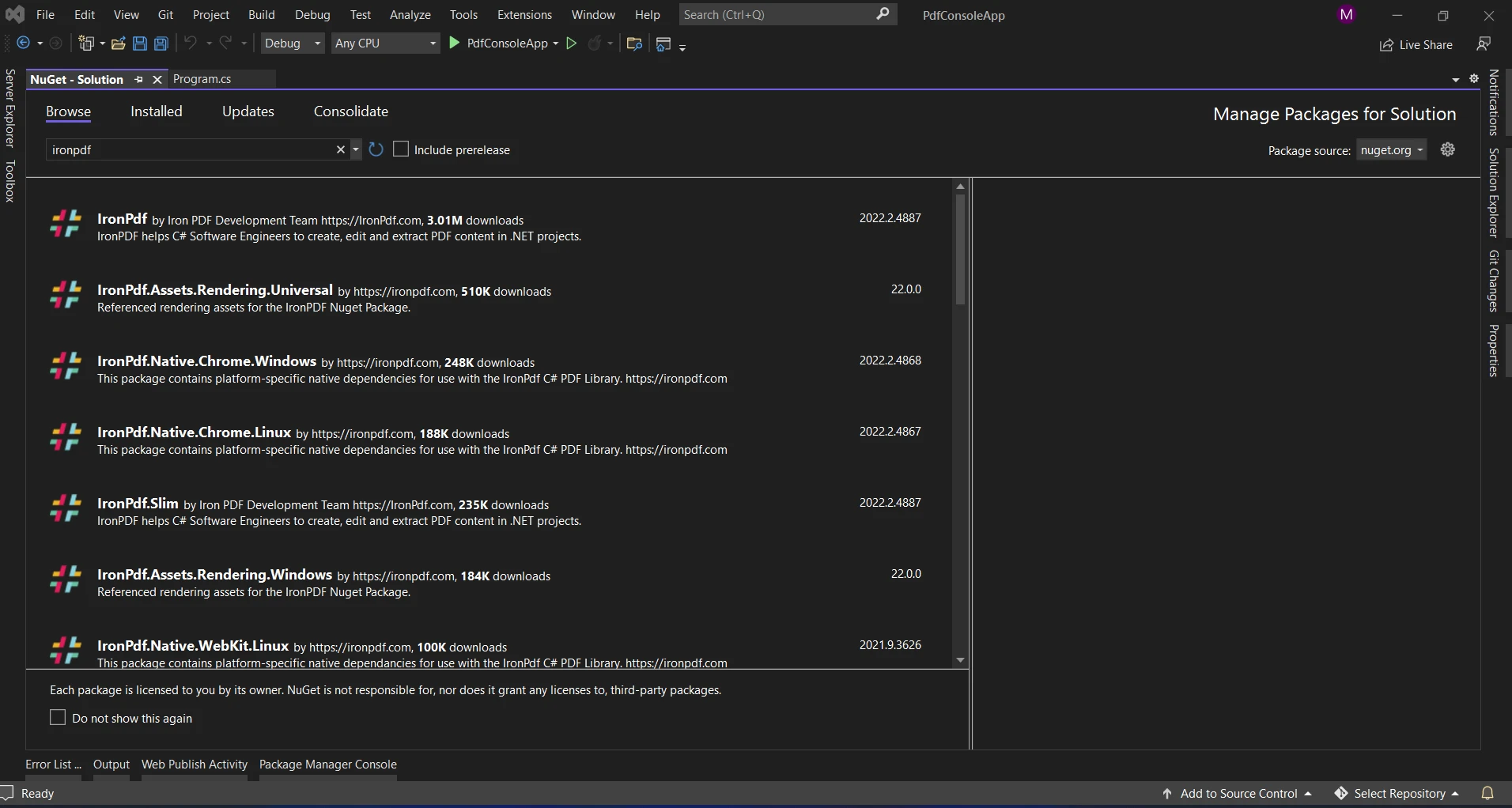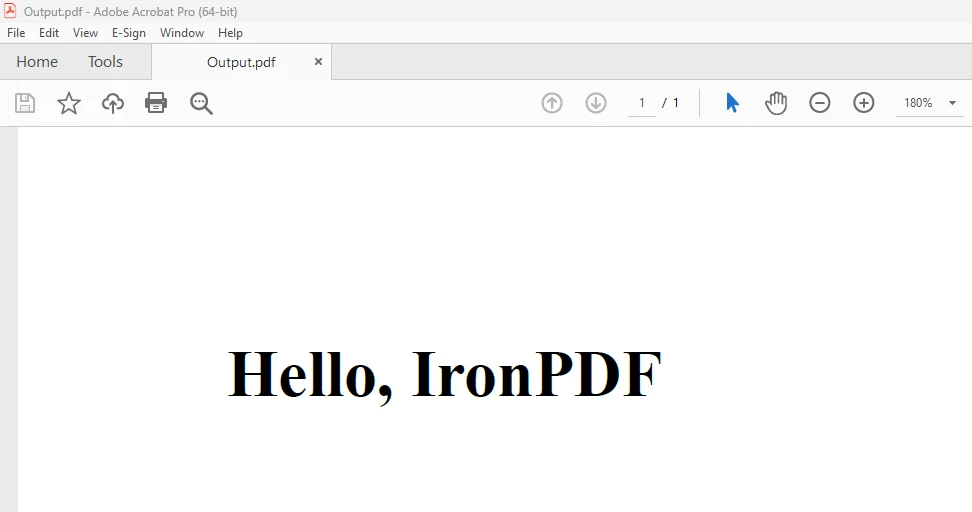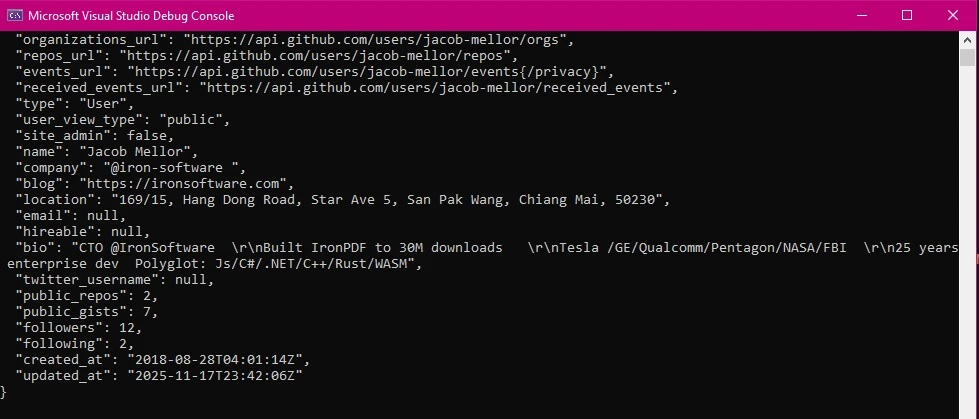C# Inheritance (How It Works For Developers)
One of the main characteristics of C#, Inheritance, is well known for its strong support of Object-Oriented Programming (OOP) principles. It is essential for writing scalable and effective code. This post will explore the topic of C# inheritance emphasizing real-world uses for IronPDF library, a potent library that makes handling PDFs in C# programs easier.
How to Use C# Inheritance
- Create a new C# console project.
- Create a base class with some methods.
- Write a new derived class and inherit from the base class.
- Call the function/method that is available in the base class.
- Process the operation and dispose of the object.
Inheritance in C#: An Overview
A key idea in object-oriented programming (OOP) is inheritance, which lets a class (the derived or subclass) take on traits and characteristics from another class (the base or superclass). In C#, inheritance is accomplished by putting the base class name after the colon : symbol.
Single Inheritance
In C#, a class can inherit from just one base class since only single inheritance is supported. This is useful when you want a derived class to extend the capabilities of a single base class.
class Animal { /* Base/Parent class */ }
class Dog : Animal { /* Derived class */ }class Animal { /* Base/Parent class */ }
class Dog : Animal { /* Derived class */ }Hierarchical Inheritance
Several classes can inherit from the same base class in a hierarchical inheritance scheme. This setup allows multiple derived classes to inherit from a single base class.
class Animal { /* Base class */ }
class Dog : Animal { /* Derived class */ }
class Wolf : Animal { /* Derived class */ }class Animal { /* Base class */ }
class Dog : Animal { /* Derived class */ }
class Wolf : Animal { /* Derived class */ }Multilevel Inheritance
A class functions as both a base class and a derived class in multilevel inheritance. This creates a chain of inheritance where each class builds upon its predecessor.
class Animal { /* Base class */ }
class Mammal : Animal { /* Derived class from Animal */ }
class Dog : Mammal { /* Derived class from Mammal */ }class Animal { /* Base class */ }
class Mammal : Animal { /* Derived class from Animal */ }
class Dog : Mammal { /* Derived class from Mammal */ }Interface Inheritance
A class in C# can implement one or more interfaces and inherit from a single base class. This allows a class to inherit method implementations described in interfaces, thus achieving a kind of multiple inheritance.
interface ILogger
{
void Log(string message);
}
class ConsoleLogger : ILogger // Derived class
{
public void Log(string message)
{
Console.WriteLine(message);
}
}
class FileLogger : ILogger
{
public void Log(string message)
{
// Code to log to a file
}
}interface ILogger
{
void Log(string message);
}
class ConsoleLogger : ILogger // Derived class
{
public void Log(string message)
{
Console.WriteLine(message);
}
}
class FileLogger : ILogger
{
public void Log(string message)
{
// Code to log to a file
}
}Abstract Classes and Methods
In C#, an abstract class serves as a base class and cannot be instantiated on its own. Its purpose is to provide a common interface and set of methods for its derived classes. Abstract methods in such a base class must be implemented by derived classes.
abstract class Shape
{
public abstract double Area(); // Abstract method
}
class Circle : Shape
{
public double Radius { get; set; }
public override double Area()
{
return Math.PI * Math.Pow(Radius, 2);
}
}abstract class Shape
{
public abstract double Area(); // Abstract method
}
class Circle : Shape
{
public double Radius { get; set; }
public override double Area()
{
return Math.PI * Math.Pow(Radius, 2);
}
}These are examples of inheritance in C#. The chosen method depends on the required flexibility, relationship between classes, and design goals.
IronPDF
The .NET library IronPDF allows programmers to create, edit, and modify PDF documents using C#. IronPDF offers various utilities to manage PDF tasks, such as generating PDFs from HTML, converting HTML to PDF, merging or splitting PDF documents, and annotating PDFs. For more information, refer to the IronPDF documentation.
Install IronPDF
To use IronPDF, you need to install it. You can use the following command in the Package Manager Console:
Install-Package IronPdf
or
Install-Package IronPdf

Alternatively, use the NuGet Package Manager to search and install "IronPDF."

IronPDF in Inherited Classes
IronPDF enhances the ease of working with PDF documents in C#. By incorporating IronPDF with inherited classes, you can extend the functionality of your application to create and manipulate PDFs effortlessly.
The Advantages of Inheritance with IronPDF
- Organized Code Structure: Inheritance promotes a well-organized code structure. You can create classes that specifically handle PDFs with IronPDF while maintaining a clean codebase.
- Code Reusability: By extending base classes, you can reuse code effectively. This is particularly beneficial when working with libraries like IronPDF, as you can encapsulate common PDF operations in a base class for reuse.
Extending IronPDF Capabilities
To extend the capabilities of PdfDocument for IronPDF integration, let's create a class named IronPdfDocument:
using IronPdf;
public class IronPdfDocument : PdfDocument
{
// Additional properties or methods specific to IronPDF can be added here
// Method to convert HTML to PDF
public void ConvertToPdf()
{
var Renderer = new IronPdf.HtmlToPdf();
var PDF = Renderer.RenderHtmlAsPdf("<h1>Hello, World</h1>");
PDF.SaveAs("Output.pdf");
}
}using IronPdf;
public class IronPdfDocument : PdfDocument
{
// Additional properties or methods specific to IronPDF can be added here
// Method to convert HTML to PDF
public void ConvertToPdf()
{
var Renderer = new IronPdf.HtmlToPdf();
var PDF = Renderer.RenderHtmlAsPdf("<h1>Hello, World</h1>");
PDF.SaveAs("Output.pdf");
}
}This IronPdfDocument class extends PdfDocument to facilitate easy PDF handling with IronPDF.
Building a PDF Report Generator
Let's use inheritance and IronPDF to create a simple PDF report generator. First, we define a Report base class:
public class Report
{
// Base method for generating a report
public virtual void GenerateReport()
{
var Renderer = new IronPdf.HtmlToPdf();
var PDF = Renderer.RenderHtmlAsPdf("<h1>Hello, World</h1>");
PDF.SaveAs("Output.pdf");
}
}public class Report
{
// Base method for generating a report
public virtual void GenerateReport()
{
var Renderer = new IronPdf.HtmlToPdf();
var PDF = Renderer.RenderHtmlAsPdf("<h1>Hello, World</h1>");
PDF.SaveAs("Output.pdf");
}
}Now, we create a PdfReport derived class that incorporates IronPDF specifics:
public class PdfReport : Report
{
// Override method to customize PDF report generation
public override void GenerateReport()
{
var Renderer = new IronPdf.HtmlToPdf();
var PDF = Renderer.RenderHtmlAsPdf("<h1>Hello, IronPDF</h1>");
PDF.SaveAs("Output.pdf");
Console.WriteLine("Generating PDF report...");
// Additional code for PDF generation with IronPDF
}
}public class PdfReport : Report
{
// Override method to customize PDF report generation
public override void GenerateReport()
{
var Renderer = new IronPdf.HtmlToPdf();
var PDF = Renderer.RenderHtmlAsPdf("<h1>Hello, IronPDF</h1>");
PDF.SaveAs("Output.pdf");
Console.WriteLine("Generating PDF report...");
// Additional code for PDF generation with IronPDF
}
}In this example, the PdfReport class inherits from Report and overrides the GenerateReport method to include custom logic for IronPDF-based PDF generation.

For more information on converting an HTML string to PDF, refer to the HTML to PDF example.
Conclusion
Inheritance, when paired with libraries like IronPDF, is a powerful feature that enhances the application development process. This post covered the basics of inheritance and provided a practical guide for integration with IronPDF.
Developing hierarchical class structures leads to a modular and structured codebase. Classes that inherit the general functions of base classes while addressing specific tasks demonstrate the benefits of reusability and extensibility. Integrating IronPDF elevates these advantages, offering seamless PDF management in your C# applications.
IronPDF's $799 Light pack includes a permanent license, upgrade options, and a year of software support. During the watermarked trial period, you can assess the software in real application environments. For more details on IronPDF's pricing, licensing, and trial version, visit the IronPDF licensing page. Explore the official Iron Software website for more Iron Software products.
Frequently Asked Questions
How can I use inheritance to enhance PDF handling in C#?
You can use the IronPDF library to enhance PDF handling by creating a derived class, such as IronPdfDocument, that extends the capabilities of the PdfDocument base class. This allows you to customize and simplify PDF manipulations in your C# applications.
Can inheritance be used to create a PDF report generator in C#?
Yes, you can use inheritance to create a modular PDF report generator in C#. By defining a base class, Report, and a derived class, PdfReport, you can utilize IronPDF to implement customized PDF generation functionality.
What are the benefits of using inheritance with a PDF library in C#?
Using inheritance with a PDF library like IronPDF promotes organized code structure and reusability. It allows developers to extend base classes to perform specific operations, maintaining a clean and efficient codebase.
How do abstract classes facilitate PDF processing in C#?
Abstract classes in C# serve as base classes that provide a blueprint for derived classes. When using IronPDF, abstract classes can define general PDF processing methods, which derived classes can then implement for specific tasks.
What role does hierarchical inheritance play in PDF manipulation?
Hierarchical inheritance allows multiple derived classes to share a common base class. In PDF manipulation, this means you can create various classes that inherit from a single base class to handle different aspects of PDF processing using IronPDF.
How can interface inheritance be applied to PDF libraries in C#?
Interface inheritance in C# allows a class to implement multiple interfaces. When working with IronPDF, you can define interfaces for various PDF operations and implement them in classes to achieve multiple inheritance-like capabilities.
What is the advantage of multilevel inheritance in C# PDF handling?
Multilevel inheritance in C# allows you to build a chain of inheritance, where each derived class adds functionality to the previous one. With IronPDF, this enables the creation of complex PDF handling workflows by extending the capabilities of each class progressively.
How can I integrate a library for PDF generation in a C# application?
You can integrate a library like IronPDF for PDF generation in a C# application by installing it via the NuGet Package Manager and then using its classes and methods to create, modify, and manipulate PDF documents programmatically.





















